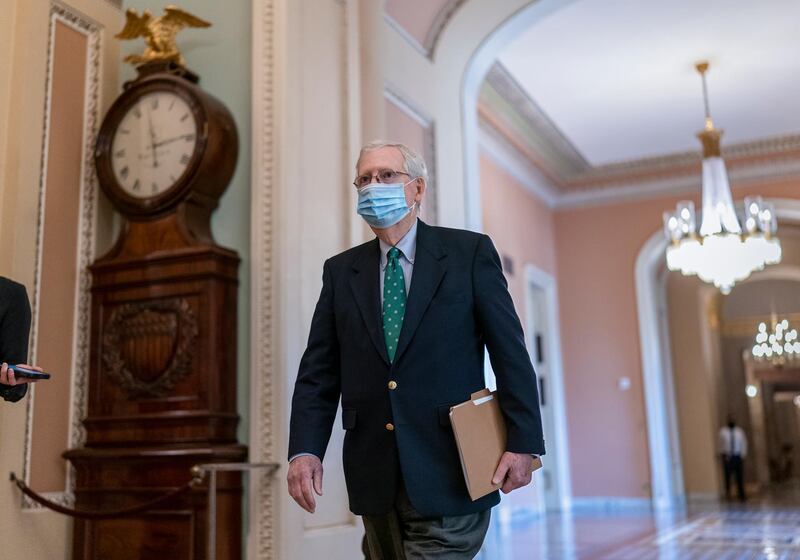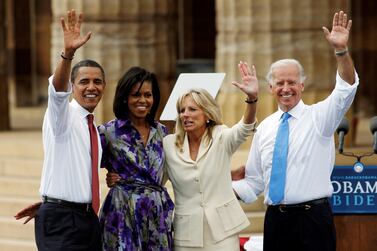Republicans on Capitol Hill are warning President Donald Trump against a partial troop withdrawal in Afghanistan and Iraq amid reports that he intends to do so before his term expires in January.
“A rapid withdrawal of US forces from Afghanistan now would hurt our allies and delight the people who wish us harm,” Senate Majority Leader Mitch McConnell argued on the Senate floor on Monday.
“The consequences of a premature American exit would likely be even worse than President Obama’s withdrawal from Iraq in 2011, which fuelled the rise of ISIS and a new round of global terrorism.”
CNN and Reuters reported on Monday that Mr Trump is considering an order to partially reduce US troops in Afghanistan and Iraq before the end of the year.
The withdrawal would leave 2,500 troops stationed in Afghanistan and another 2,500 in Iraq. There are currently about 4,500 US troops in Afghanistan and 3,000 in Iraq.
Mr Trump tweeted in October that the remaining US troops in Afghanistan should return home by Christmas – blindsiding officials in the State Department and Pentagon. The Trump administration is currently in talks with the Taliban aimed at withdrawing US troops from Afghanistan and establishing a peace process with the Kabul-based government.
But Mr McConnell said that “violence affecting Afghans is still rampant".
"The Taliban is not abiding by the conditions of the so-called peace deal," he said.
Mike McCaul, the top Republican on the Armed Services Committee in the US House of Representatives, who is retiring in January, issued a similar warning. He argued that “a premature US withdrawal would not only jeopardise the Afghan government’s ability to negotiate but would endanger US counterterrorism interests”.
“The US-Taliban agreement is conditions-based for a reason – the Taliban cannot be permitted to not fulfil their commitments while we fulfil ours. We need to ensure a residual force is maintained for the foreseeable future to protect US national and homeland security interests and to help secure peace for Afghanistan.”
Similarly, Mr McConnell argued that a withdrawal “would hand a weakened and scattered Al Qaeda a big propaganda victory and a renewed safe haven for plotting attacks against America” while serving as “welcome news to Iran, which has long provided arms and support to the Taliban and explicitly seeks our retreat from the Middle East".
Iran-backed militias have repeatedly clashed with US forces in Iraq, where US troops remain to combat ISIS cells throughout the country. Mr Trump discussed US troop levels in Iraq with Prime Minister Mustafa Al Kadhimi when he visited the White House in August.
After losing the US election to President-elect Joe Biden earlier this month, Mr Trump fired his Defence Secretary Mark Esper, who in August publicly criticised the president's stated plans to withdraw US troops from Germany.
Mr Esper’s replacement, Acting Defence Secretary Christopher Miller, discussed Afghanistan in numerous introductory calls with his European counterparts this past week.








